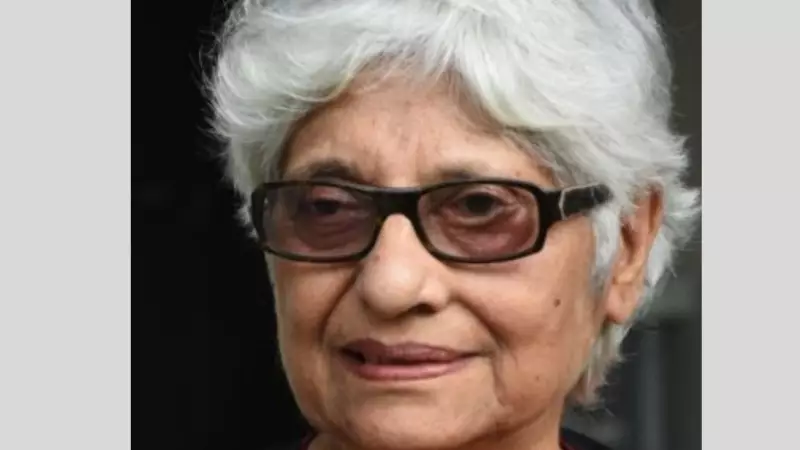
Esteemed journalist and political commentator Neerja Chowdhury has made a compelling declaration that this century could truly belong to women in India, provided the nation implements transformative measures focused on female empowerment through education, financial independence, and political participation.
The Blueprint for Women's Century
Speaking at the prestigious Ahmedabad International Book Festival, Chowdhury emphasized that revolutionary rather than incremental changes are necessary to unlock women's potential. "If we get it right, this century will belong to the women of India," she stated during a session titled 'Inside the Corridors of Power: Governance and Choice of India's Leadership'.
The contributing editor of The Indian Express highlighted that while providing financial assistance to women is crucial, the real transformation comes from structural changes. "Making girl education compulsory and increasing the marriage age from 18 to 21 years creates an environment where families feel compelled to send daughters to schools and colleges rather than keeping them at home," she explained.
Nitish Kumar's Women-Centric Politics
Chowdhury extensively analyzed Bihar Chief Minister Nitish Kumar's two-decade long focus on women's empowerment, describing him as "an interesting figure who has been doing 'mahila ki rajniti' (politics of women) for the last 20 years."
She traced the evolution of Kumar's women-oriented policies starting from 2005 when his government introduced bicycle distribution for school-going girls and provided uniforms, significantly increasing female enrollment and reducing dropout rates. This was followed by progressive measures including 35 percent reservation in police forces and government jobs, 50 percent quota in local bodies, and the prohibition policy.
The political commentator particularly emphasized the impact of Kumar's recent initiative of providing Rs 10,000 to women. "Wherever I went during Bihar polls, women were talking about how they used the amount. Now she is earning more, she has been able to change how the family looks at her," Chowdhury observed, while acknowledging criticism about the timing of the announcement just before elections.
The Future of Women Empowerment in Indian Politics
Chowdhury predicted that Kumar's model of combining women empowerment with financial benefits would become a template for other states. "In the coming days, every CM is going to do the same – politics of mahila plus money – to fight anti-incumbency," she stated, noting that Assam Chief Minister Himanta Biswa Sarma has already discussed similar initiatives.
She made a powerful observation about the unstoppable nature of women's aspirations: "You cannot stop women empowerment and her aspirations. You can delay the process, but stopping it is impossible. The party that will take it strongly will go forward."
Political Landscape and Institutional Pressures
Addressing broader political developments, Chowdhury spoke about the pressure on press and institutions, revealing that there was significant buzz in Delhi about the potential arrest of Aam Aadmi Party convener Arvind Kejriwal by the Enforcement Directorate.
She analyzed the political space occupied by newer parties like AAP and Prashant Kishor's Jan Suraaj Party, noting that "both occupied a political space that exists, which could have rather been occupied by the Congress, but it failed to do it." While acknowledging Kishor's current electoral setbacks, she cautioned against dismissing his future potential, identifying his decision not to contest himself as a significant strategic error.
Reflecting on Bihar's political dynamics, Chowdhury provided insights into Nitish Kumar's enduring relevance despite representing the Kurmi caste with only 2-3 percent population share. "Whenever he was under pressure of becoming irrelevant, he would jump to the other side and regain his relevance," she noted, adding that Kumar successfully prevented BJP from tilting toward hardline Hindutva politics in Bihar.
The session concluded with Chowdhury's optimistic vision for Indian women, backed by concrete policy recommendations and political analysis drawn from her recent book How Prime Ministers Decide and extensive ground reporting from Bihar during the assembly elections where the NDA secured a thumping majority with 202 seats in the 243-member house.





